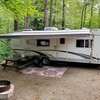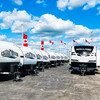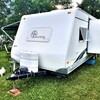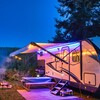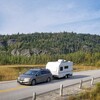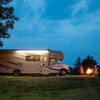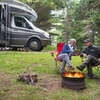
So You Want to Buy an RV
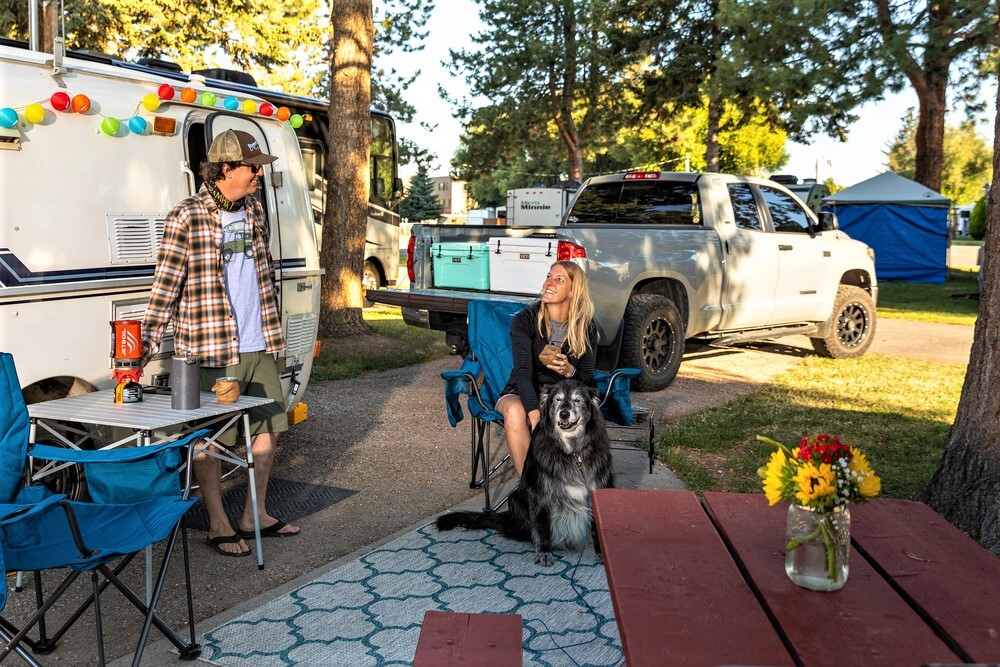
Interest in camping and RVing has grown by leaps and bounds this year, inspired by folks heading "off the grid," thanks to a global pandemic. Camping truly is the one bright light in this pandemic’s otherwise dark room but thank goodness for a plethora of great camping options in Ontario’s north.
According to Kampgrounds of America (KOA), 33% of Canadians have been camping their entire lives, while 50% of those intend to do more camping this year, and 54% of camping households intend to take longer camping trips next year. What about those new to camping and RVing, or those wishing to upgrade their current camper? When it comes to travel trailer/RV purchase, the law of supply and demand has cast an ugly shadow and RV sales have skyrocketed.
By reviewing these travel trailer/recreational vehicle options, you will have a better sense of what travel rig is best for you, and perhaps even save money in the process. Take it from an enthusiast who has camped in every Canadian province for more than four decades, and bought (and sold) nearly a dozen trailers.
The RV options are out there. Let us look at the categories.
Recreational Vehicle Options
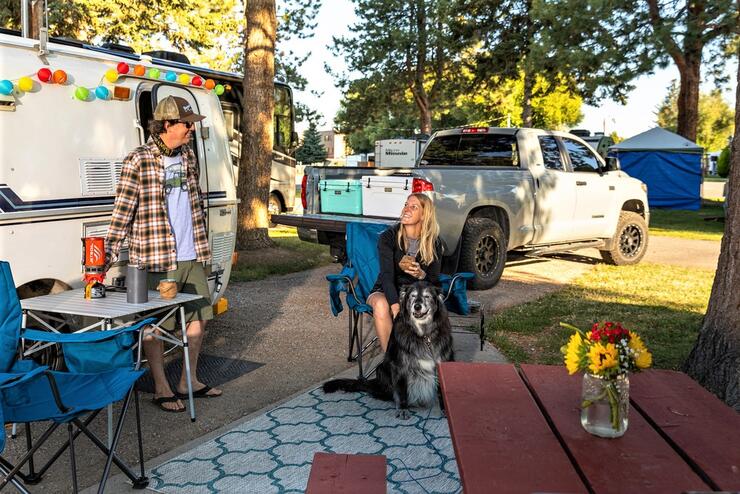
When it comes to "wheeled campers," there are essentially six options available:
- Class A recreational vehicles/motorhome
- Class C recreational vehicles/motorhome
- Fifth-wheel trailers
- Travel trailers
- Hybrid campers
- Tent trailers
Each choice has its pros and cons. The right one for you really depends on your needs and budget.
Let’s take a look at each of the RV categories.
Class a Recreational Vehicle/Motorhome
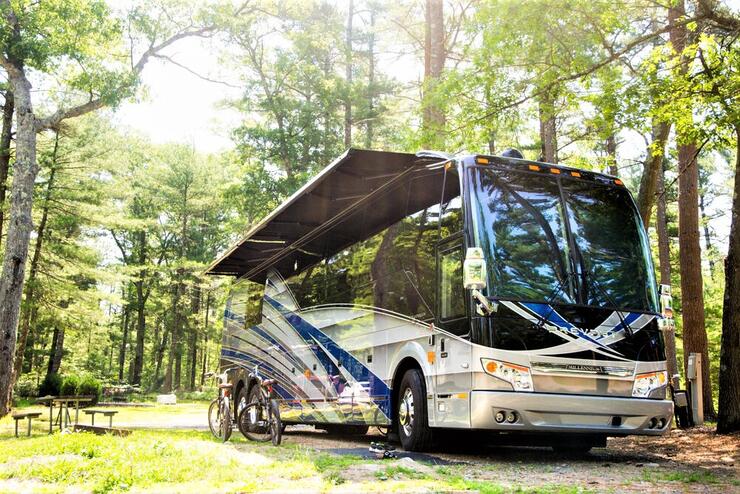
The largest of the fleet and most expensive are the Class A RVs. These monster self-propelled motorhomes, often referred to as "busses," retail for between $150,000—$400,000+ new. They are typically the most luxurious while also costing the most operate. Class A rigs are not intending for remote off-grid camping due to their size and service hookup requirements. Many of these units require 50 AMP electrical service versus more common 30 AMP, more readily found in most campgrounds in Canada. If luxury and comfort or full-time living is required, these large motorhomes are a good option, keeping in mind their retail price is nearly that of an Ontario home.
Class c Recreational Vehicle/Motorhome
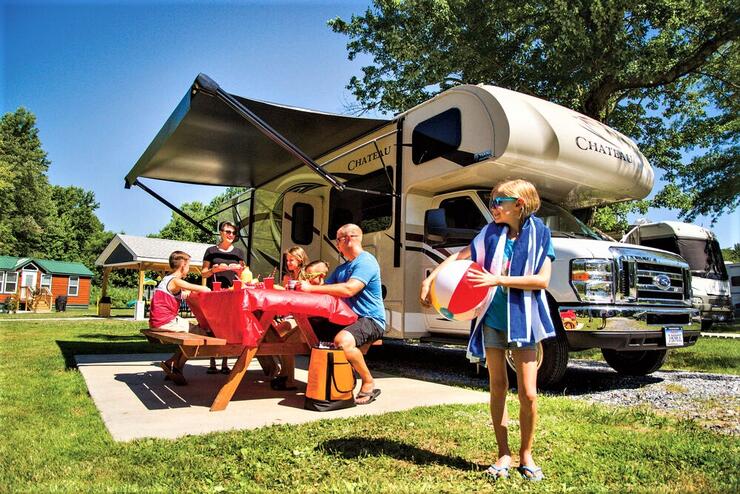
Class C motorhomes are a more practical self-propelled camper choice, smaller and less expensive than Class A. They range in size from 21-36 feet in length, with construction based off a van or truck frame. They're also easier to drive and more economical than other RV options, so if self-propelled camping is your jam a C-class rig is the way to go. Most operate off 30 AMP service and are agile enough for somewhat remote camping situations.
The price range is $70,000—$150,000 for a new Class C motorhome.
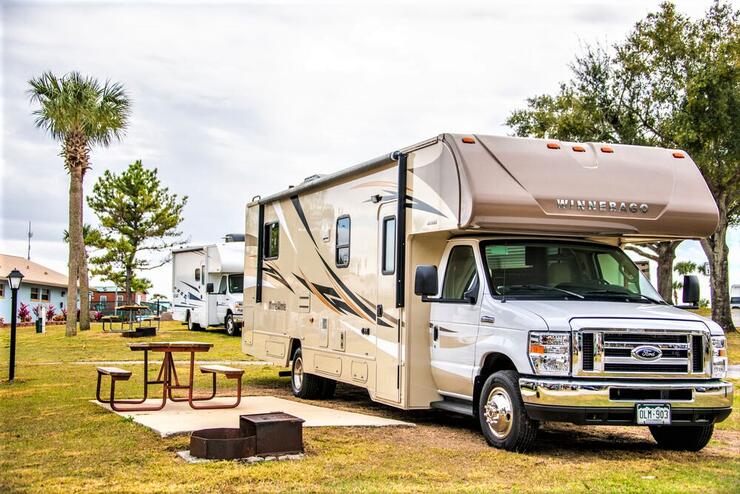
Fifth Wheel trailer
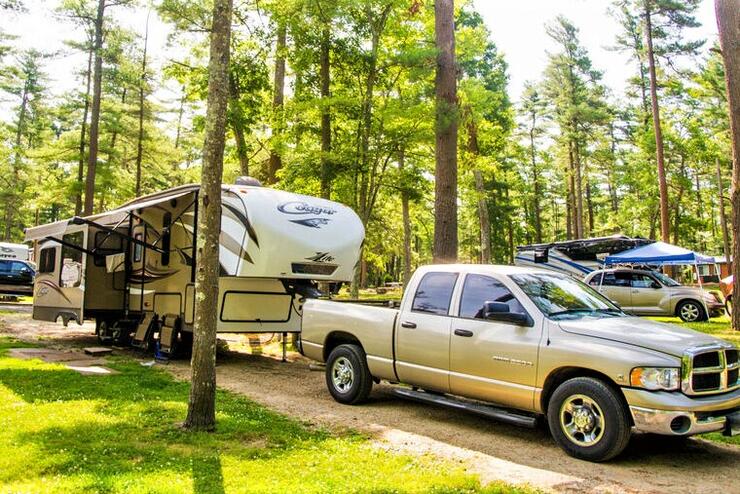
A fifth-wheel trailer is similar to a conventional travel trailer, except for the way it is hitched. Regular trailers are towed using the common ball and coupler hitch, while a fifth wheel uses a "jaw hitch" secured directly to the centre bed of a pickup truck. Fifth-wheel trailers are slightly more expensive than regular travel trailers and offer a different layout, with a step-up master bedroom and higher ceilings. Camping aficionados will tell you that fifth-wheel trailers are superior, and safer, for travelling long distances due to the mechanics of the jaw hitch towing position, which takes the strain off a vehicle's backend.
Fifth wheels range in price from $30,000—$150,000 for a new unit.
Travel Trailer

Travel trailers are by far the most popular RV segment, ranging in size from 17-foot to 40-foot and costing, on average $15,000—$100,000 new. They are hitched to a truck or SUV and towed for camping purposes. Depending on the length, smaller 17-21’ travel trailers are maneuverable and can be used in remote camping locations. The ubiquitous travel trailer comes in a multitude of sizes and layouts, made by several manufactures. Do your homework on the best deal, that has options that suit your needs, and be sure it is matched properly to the vehicle you will be towing with. Never haul a trailer heavier than your vehicle’s rated towing capacity.
Hybrid Travel Trailer
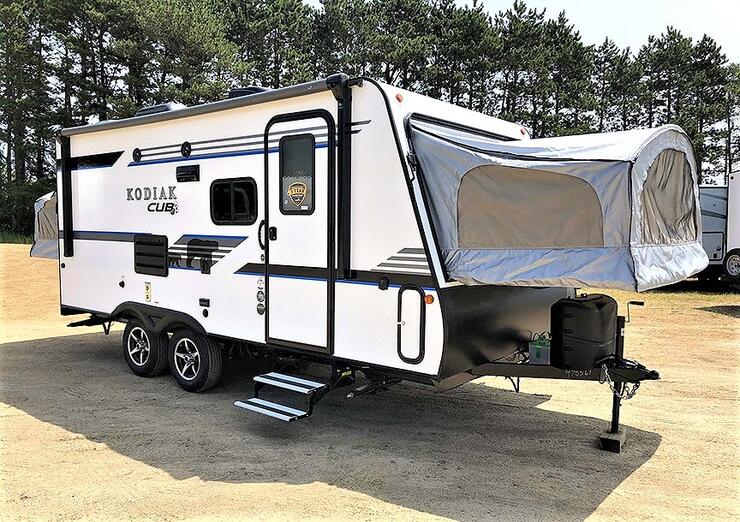
Hybrid trailers are travel trailers with pop-out "tent ends" similar to a tent trailer. The advantage of a hybrid over a conventional trailer is increased floor space at little added weight. Hybrids are popular with campers who drive minivans and lighter SUVs, which are limited on extra towing capacity. Since hybrid trailers offer one or more (soft material-sided) pops-outs, the beds are located outside the trailer floor space offering expanded room for walking around. The downside to not having ‘4 solid walls’ is increased noise and trailer maintenance. Soft tent-ends are prone to leaks requiring extra care and cause your trailer to less soundproof.
Purchase price is similar to conventional camping trailers.
Tent trailers
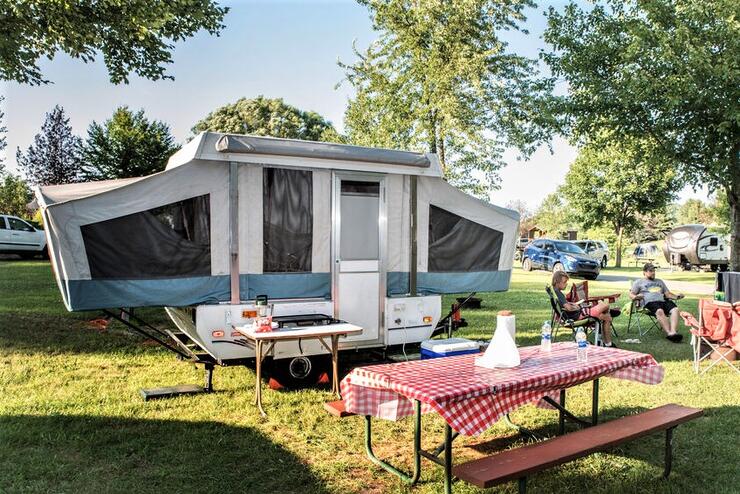
Tent trailers (popups), as the name implies, combine a soft tent-like material component with a hardtop trailer construction, making for the lightest and most economical RV choice. Tent trailers range in price from $10,000—$20,000 new, with some weighing as little as 800 pounds. They are light to tow, often with a car, and are used in more remote camping locations. Tent trailers are the next step up from tenting and make a great first RV purchase.
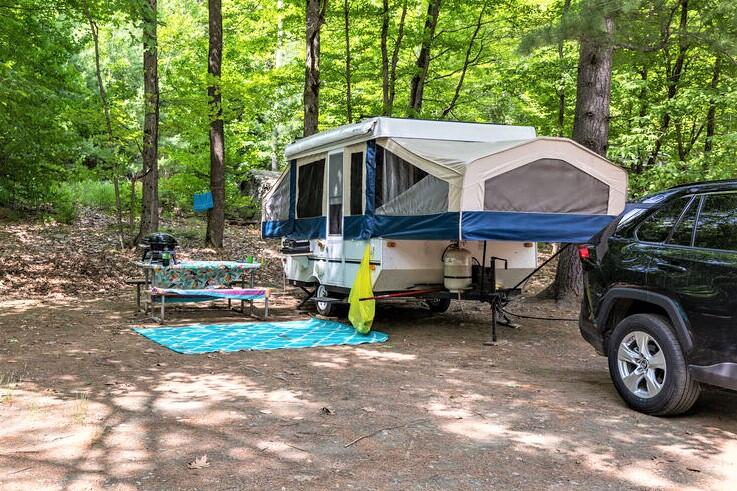
Finding the best deal
Buying a new RV is tough on the nerves and pocketbook and there is good reason for this, given the average 40% markup on new trailers. The profit margin on RV sales is much higher than in the automobile industry. An MSRP price on a trailer, for example, is not the price a dealer actually pays for a unit, merely the suggested price set by the manufacturer. Take an RV with a $100,000 MSRP at your local dealership. The dealer likely paid $75,000 for the unit, and then offers a spring sale on the same unit for $95,000, advertised as “$5000 below retail”. Great deal, right? The dealer turns a $20,000 profit! The average dealership profit on one car sold in the auto industry, by comparison, is less than $1500!
Pre-owned
The best RV deals are always found on pre-owned. Avoid buying new whenever possible. Of the dozen, or so, trailers I bought and sold over the years, I never purchased new. Buying a lightly used 3-5-year-old unit is the best investment, provided you inspect it thoroughly. I have purchased 3-4-year-old trailers that look new at less than half the retail price. Seasonal campers may only use an RV a few times each summer, making a 3-4-year-old unit still in "like new" condition. Imagine purchasing a 4-year-old car that was only driven 20-30 times?
Pre-owned is indeed getting harder to find due to this year's Covid-inspired camping boom, and new trailer sales are at record levels, but deals are still out there, you just need to be quick. Best deals on used RVs are usually in the fall, at the end of the camping season, but I have found early season trailer deals in the spring too. Do your research, check prices, have the cash-in-hand, and be ready to pull the trigger quickly!
Happy camping!
I hope you find your dream RV be it a tent trailer, travel trailer, hybrid, fifth wheel, C-class or A-alass. And hope you get a good deal, too. If you're looking to test out an RV before taking the plunge, renting is a great option, too.
See you in the great outdoors this summer!
Recommended Articles

The Complete 2026 List of RV Shows in Ontario

RV Camping Sites in Ontario: The Ultimate Guide

An RV Camping Guide to Ontario's Provincial Parks

4 Essential RV Itineraries From Toronto

5 Tips on How to Go Full Time Remote Work With Your RV

RV Summer School: An Educational Road Trip That Kids Will Actually Enjoy

A Guide to RV Camping at Pancake Bay Provincial Park

Love on the Run

Have Your Toured Ontario's Provincial Park Nature Trail?

An RVer's Guide to the Voyageur Trail

Camping and RVing in Restoule Provincial Park
